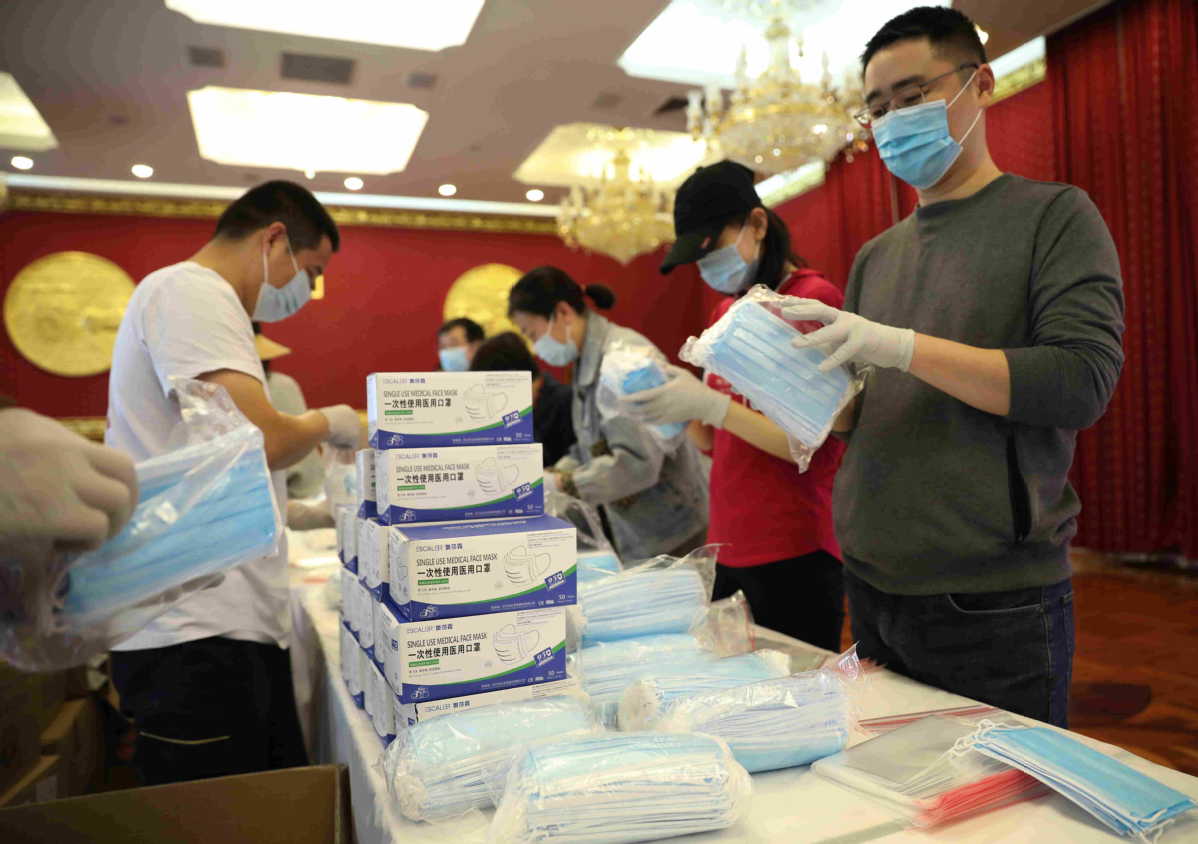COVID-19 stymies overseas study sector


"In the past decade, the number of people studying abroad, especially in developed English-speaking countries, has risen rapidly as people sought better education resources worldwide. Although higher education has developed rapidly in China, there is still a gap with developed Western countries," he said.
While the policy and social environments in destination countries have a significant influence on international student numbers, a welcoming attitude from the government and locals will encourage students to travel, Shi said.
Students who want to study abroad need to weigh their input against the output. They need to practice their language skills and obtain related professional knowledge while the epidemic lasts, and also try to find a job in China so they can gain work and social experience, he added.
"They need to face the changes brought by the COVID-19 outbreak bravely and make full preparations for the future, rather than being held back by the pandemic. In China, the outbreak is gradually being contained, so the students have many opportunities to enrich their lives and display their talents," he said.
Profound changes
Hu Hongtao, director of the overseas business division at SmartStudy Education & Technology, an education provider in Beijing, said the pandemic has slowed China's entire overseas study sector.
He said the pandemic will force many parents to think twice about sending their children to study abroad or selecting educational or training institutions because the fees are a huge expense for many families. As a result, many such institutions are likely to face tough times.
Hu's company has moved all of its teaching online for the duration of the pandemic. He said that only those institutions that had made adequate preparations and introduced innovative developments during the outbreak would attract students.
For the first time, all primary and middle school students are taking classes online, which will help to accustom both them and their parents to changes in traditional learning methods, he said.
"Following the epidemic, both online and online-offline mixed education will be widely accepted. Some parents said their children did not warm to online classes at first, but they gradually adapted, and once they take classes online they will continue to use the new system. So, I think the pandemic has brought both an opportunity and a challenge," he said.
Hu's company is facing a 10 percent decline in the number of new students due to the pandemic, so it is boosting marketing efforts to offset the impact. However, he thinks the pandemic's effect will be limited in his sector because it will not narrow the gap between education standards in China and developed countries, or stop Chinese people from seeking good education resources.
"The demand for high-quality education resources will not change. The whole sector will recover quickly after the pandemic. Most parents will be able to deal rationally with the negative impact and make timely adjustments for their child. Also, less than 10 percent of students may drop their plans to study overseas," Hu said.
He added that many potential students are facing difficulties this year, such as delayed application procedures and slow distribution of student visas. Also, many countries have taken measures to reduce the number of international flights to curb the risk of importing the virus, which has sent ticket prices soaring.
He suggested that students should remain calm and pay attention to notices released by universities and local governments.
"For those who failed to prepare properly, postponing their plans may offer an opportunity to gain more professional experience and improve their language skills. Parents can also let their child gain a bachelor's degree in China before pursuing a master's abroad," he said.
In terms of the culture shocks that have emerged as a result of the pandemic, Hu said no matter which country students travel to, they will experience the impact of different cultural concepts, which is also a form of education.
"Compared with the pressures faced by the first group of overseas students after the reform and opening-up policy started (in the late 1970s), today's students may face less pressure. I think today's students should be more confident because they have a strong motherland behind them," he said.
- Creative fireworks show held in China's 'fireworks capital'
- Chinese scientists achieve net-negative greenhouse gas emissions via electrified catalysis
- At the gateway to China's resistance, memories of war echo 88 years on
- Mainland scholar outlines 10 fallacies in Lai's separatist narrative
- China's first ocean-level smart scientific research vessel delivered in Shanghai
- World's first somatic cell-cloned dzo born in Xizang






































